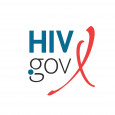This post is from B. Kaye Hayes, MPA, Deputy Assistant Secretary for Infectious Disease, Director, Office of Infectious Disease and HIV/AIDS Policy (OIDP), Executive Director, Presidential Advisory Council on HIV/AIDS (PACHA)
The news of the passing of Dr. Adaora Adimora brought tears to my eyes. I had the honor of working with her while she served as an active and valued member of the Presidential Advisory Council on HIV/AIDS (PACHA). During her tenure on PACHA, she thoughtfully shared her knowledge and perspectives as an esteemed physician, educator, mentor, and researcher to inform federal HIV programs and policies.
Dr. Adimora served on PACHA from September 2013 until her term was ended along with all other members of the council in December 2017. A distinguished physician and HIV researcher, she dedicated her career to investigating the epidemiology of heterosexual HIV transmission among African Americans, highlighting the role of sexual network patterns in the spread of HIV, and underscoring the importance of social forces on racial disparities in the U.S. HIV epidemic.
She was the Sarah Graham Kenan Distinguished Professor of Medicine at the University of North Carolina (UNC) School of Medicine and a professor of epidemiology at the UNC Gillings School of Global Public Health. An esteemed HIV leader nationally and globally, she also served as a member of the DHHS Antiretroviral Guidelines Panel, the board of the HIV Medicine Association, and the International AIDS Society’s Governing Council.
Dr. Adimora was a leading scholar on women and HIV. She served as co-director of the UNC Center for AIDS Research (CFAR), was chair of the NIH HIV Prevention Trials Network’s Women at Risk Committee, and also served as Principal Investigator of the UNC site of the NIH-supported Multicenter AIDS Cohort Study-Women’s Interagency HIV Study Combined Cohort Study (MACS/WIHS CCS), the largest and longest-running cohort of persons with and at risk for HIV.
She also was a courageous and vocal champion for strategically addressing HIV disparities. She challenged the status quo and was relentless in her pursuit to understand and address social determinants of health driving racial/ethnic disparities in HIV. She also devoted time and effort to increasing the pool of HIV physicians and researchers from racial/ethnic minority backgrounds.
My team at OIDP and I send our deepest condolences to Dr. Adimora’s family and colleagues. Her legacy of scholarship, mentorship, and collaboration will continue to inspire all of us.
This blog post was published January 8, 2024, on HIV.gov.








Comments
Comments